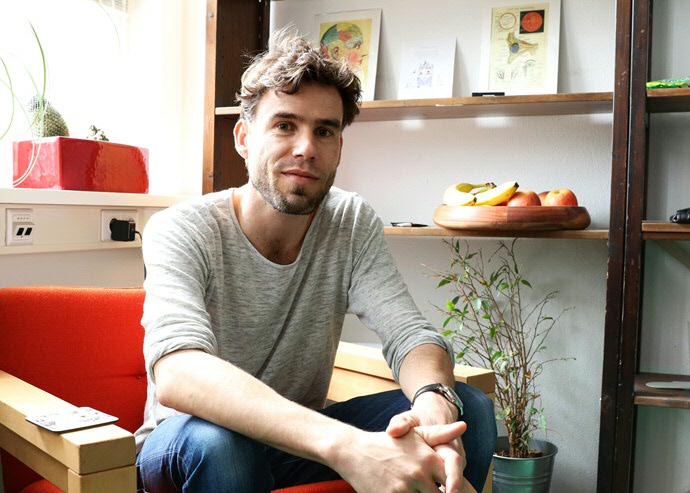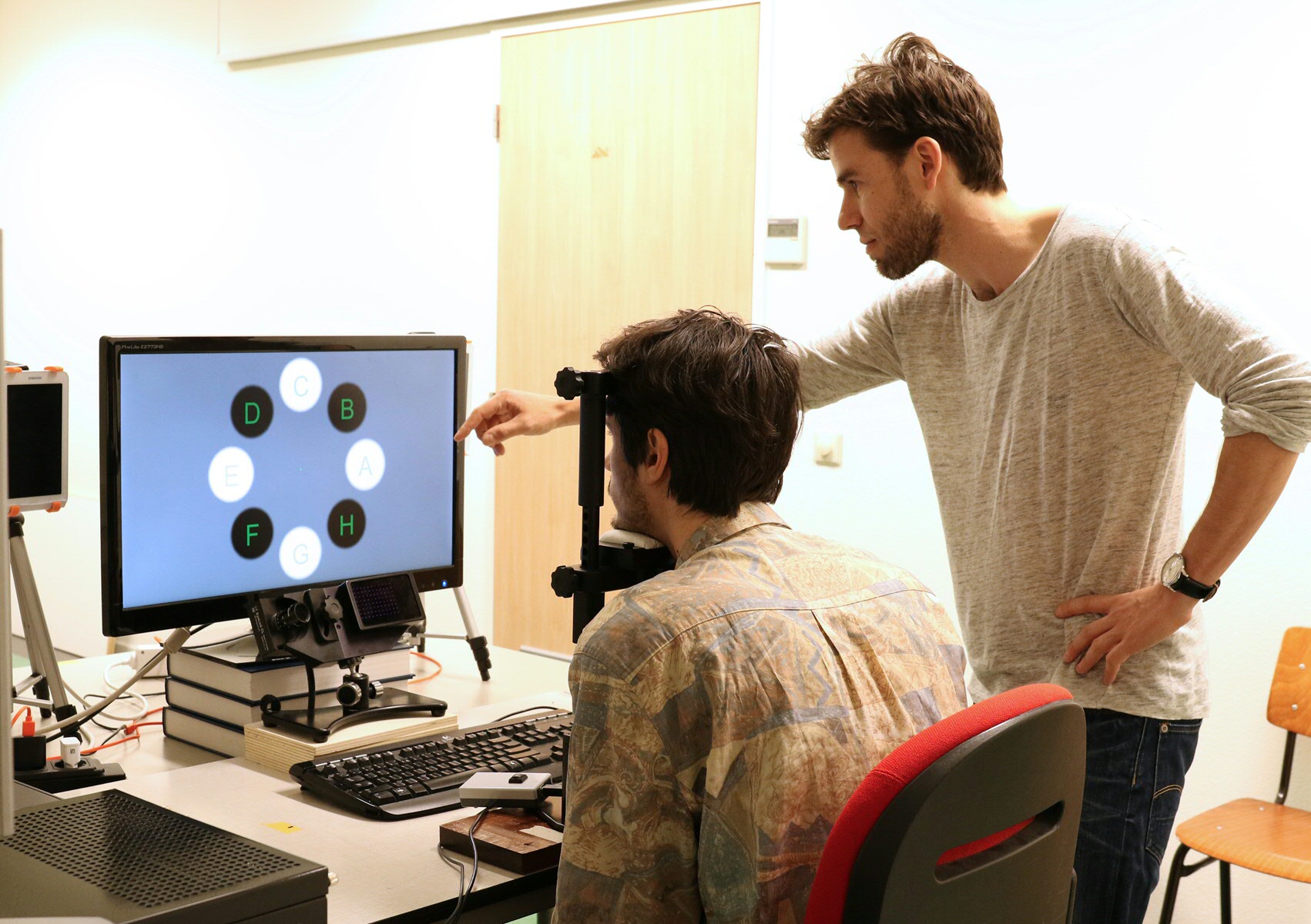Our sensitive pupils

Sebastiaan Mathôt is a researcher in the department of Experimental Psychology. His research focuses on our pupils, which are proving to be a mine of subconscious information. Mathôt’s research into pupils has enabled him to develop an interface for use in communication with patients with locked-in syndrome: people who are paralysed to the extent that they cannot move any part of their body.
Text: Eelco Salverda, Communication UG / Photos: Hesterliena Wolthuis
Pupils respond to words
Mathôt is actually a cognition scientist. Cognition science is all about observing, thinking and learning. Mathôt: ‘Concentration and eye movement is my thing. It involves a lot of research into pupils. We all know that our pupils react to light and darkness. This is known as the light reflex. But my research has shown that this reflex doesn’t just react to light and darkness; it can actually be controlled by concentrating. In other words, if you concentrate on an illuminated object in the corner of your eye without moving your eyes, your pupil will contract as if you were looking directly at the object. Pupils also respond to words that you read or listen to if you associate them with light or darkness. If you read a word that makes you think about light, such as ‘lamp’ or ‘sun’, your pupils will be smaller than when you read a word that alludes to darkness. The basic idea is that if a word conjures up an image of something light, your pupils respond in the same way as they would if you actually saw the object, but to a lesser extent.
Locked-in syndrome
Mathôt previously worked in France at the University of Aix-Marseille, where he published an article in PlosONE about an interface he developed to communicate with locked-in syndrome patients suffering total paralysis. ‘There are already brain-computer interfaces that enable these patients to communicate, but most of them are operated by electrodes fitted to the brain or skull. Many of these systems are indirectly based on measuring eye movement, so they only work if patients can still move their eyes,’ explains Mathôt. ‘I have tested my method on healthy trial subjects and shown that people can form sentences by using the way their pupils react when they think about a letter. Having said this, it’s a very slow process. You select a letter on a screen purely by concentrating, and without having to move your eyes.’
Experimental
Why are you focusing on pupils? ‘I like to pick subjects that almost nobody else is studying,’ says Mathôt enthusiastically. ‘There’s so much you can do. You’re not just researching a tiny sub-area of a subject that we already know a lot about. Nearly everything you study, everything you discover, is new. Experimental Psychology is my field. As the name suggests, our research is largely fundamental. I want to know how visual systems work, what our pupils respond to and why. But there is plenty of potential for this research. Eyes and pupils enable us to look, focus and even cause fatigue, all of which are important practical matters. Take mobile phones or the colour of your computer monitor. White is known to be a good background colour when reading and writing texts. But does this necessarily apply to all tasks? A darker background colour is better for certain other functions and you read a lot about how blue light from iPad and phone screens interferes with sleep. These are all insights and applications that stand to benefit from my research.’

Emotions
‘At the moment, I’m exploring the matter of why pupils dilate. We know that pupils respond to all kinds of stimuli. They react to light, but also to emotions. They dilate when you are angry or scared, for example. I want to find out why this is, whether it affects or aids our behaviour. If your pupils contract, you can focus better, whereas large pupils give you better peripheral vision. This could be functional when you are scared or under threat. What’s the most important thing I’ve discovered until now? The light reflex of pupils during cognitive processes. All the rest follows on from this.’
More information
More news
-
03 February 2026
‘Such willpower’
-
20 January 2026
Alcohol, texting, and e-bikes
-
13 January 2026
Lonneke Lenferink joins The Young Academy
